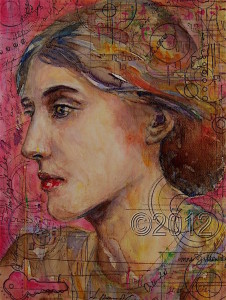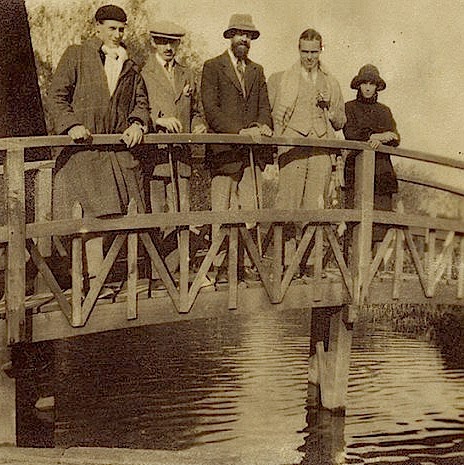 Found- a press-cutting from The Observer – April 6th, 1941 a week after the suicide by drowning of Virginia Woolf. This ‘appreciation’ accompanied a memorial poem by Vita Sackville-West. It was by the now slightly forgotten critic Basil de Sélincourt. Virginia Woolf notes in her diary how she was heartened when he praised her novel The Waves (1937). It was said to be her favourite review. There is a good photo of Selincourt at the National Portrait Gallery by Lady Ottoline Morrell.
Found- a press-cutting from The Observer – April 6th, 1941 a week after the suicide by drowning of Virginia Woolf. This ‘appreciation’ accompanied a memorial poem by Vita Sackville-West. It was by the now slightly forgotten critic Basil de Sélincourt. Virginia Woolf notes in her diary how she was heartened when he praised her novel The Waves (1937). It was said to be her favourite review. There is a good photo of Selincourt at the National Portrait Gallery by Lady Ottoline Morrell.
An Appreciation – Basil de Selincourt
The loss of Virginia Woolf is not only a grave blow to English letters, but will also be widely felt by many who had no personal acquaintance with her. It was not for nothing that she collected her brilliant, or radiant, studies in Criticism under the title “The Common Reader”. The originality of her mind and the acuteness and range of her perception never isolated her, never led her to forget that the foundation of the literary art is sympathy, that we write to be understood, to make our vision carry. True, the reading of her novels can be a strenuous exercise, but it is an exercise in intimacy. The greatest of them, “The Waves,” most of us must be content to wonder at; we can hardly hope to comprehend it. But however we may be baffled by work of hers, we have never been offended. Its elusiveness is the elusiveness of nature. Her waters are limpid as the sea’s on a solitary shore; her phrase has the decisiveness, the crisp outline of a shell. Her horizons only are unfathomable. She has preferred to keep here even for herself a quality of mystery, as if the greatest communication a writer has to make were the sense of an incommunicable infinite, of a truth always present wholly, and therefore never seizable in any part. Continue reading


